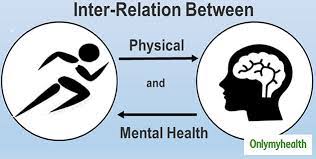Striving for a balance between emotional health and physical health
Mental health is an important aspect of our overall well-being, often interconnected with our physical health. Achieving a harmonious balance between emotional and physical well-being is crucial for a fulfilling and healthy life.

Emotional health significantly influences our thoughts, feelings, and behaviors. It encompasses our ability to cope with stress, manage emotions, build relationships, and maintain resilience in the face of adversity. When emotionally robust, individuals tend to handle life’s challenges with greater ease and adaptability.
Physical health, on the other hand, focuses on the body's well-being. Regular exercise, a balanced diet, adequate sleep, and preventive healthcare practices are crucial components. Good physical health not only enhances our bodily functions but also positively impacts our mental state. Exercise, for instance, releases feel-good hormones, which elevate mood and reduce stress.
The interplay between emotional and physical health is intricate. A person's emotional well-being can affect their physical health, and vice versa. Stress, anxiety, or depression can manifest physically, leading to headaches, muscle tension, or even chronic conditions. Similarly, chronic physical ailments can have a considerable impact on one's emotional state, potentially leading to feelings of sadness, frustration, or hopelessness.
The perfect balance of physical and mental health
Achieving a balance between emotional and physical health is an ongoing process. Prioritizing mental health alongside physical health is crucial for a harmonious and resilient existence.
Striving for a balance between these facets involves holistic self-care practices. Mindfulness and stress-reduction techniques like meditation or yoga contribute significantly to this balance. These practices not only alleviate stress but also enhance emotional regulation and mental clarity.
Nurturing social connections and maintaining healthy relationships bolster both emotional and physical health. Strong social bonds provide support during tough times, reducing feelings of isolation and promoting overall well-being.
Furthermore, seeking professional help when needed is crucial. Mental health professionals, such as therapists or counselors, offer valuable support and guidance in managing emotions, navigating life transitions, and developing coping mechanisms.
Creating a healthy lifestyle routine that integrates physical and emotional well-being is key. This includes maintaining a nutritious diet, regular exercise, quality sleep, and setting aside time for relaxation and hobbies. Engaging in activities that bring joy and fulfillment contributes significantly to emotional stability.
Moreover, fostering a positive mindset can enhance both emotional and physical health. Cultivating gratitude, practicing self-compassion, and reframing negative thoughts can improve resilience and overall well-being.
